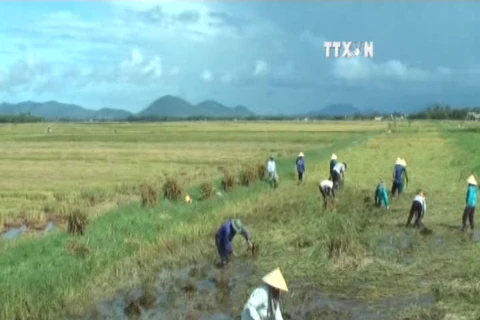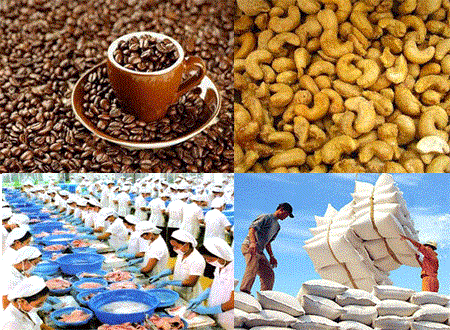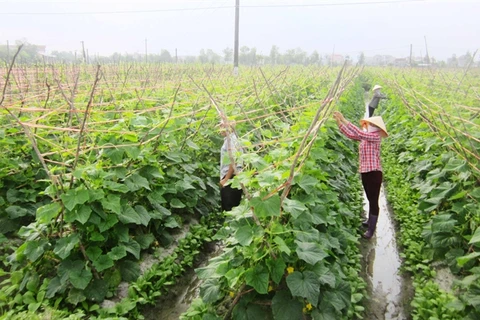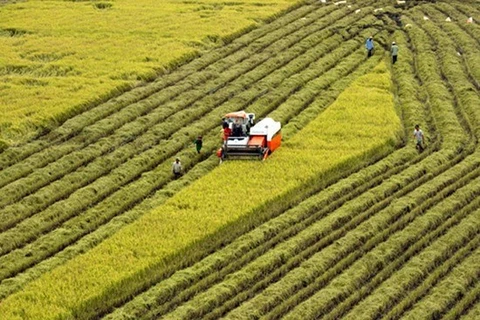Hanoi (VNA) – The restructuring of agriculture sector towards high technology was a highlight of the National Assembly’s debate on November 2.
Deputy Huynh Thanh Canh, representing the southern central province of Binh Thuan, pointed out that one of the shortcomings of agriculture is poor infrastructure system serving production and natural disaster prevention.
Canh said the quality, productivity, efficacy and added value of the sector remain low, while the market is unstable with much dependence on the Chinese market.
At the same time, the sector is facing negative and unexpected impacts of climate change, especially saltwater intrusion and landslide in many places that led to a loss of farming land.
The deputy suggested that the Government focus on designing support policies for cultivation, breeding and aquatic farming, especially in localities affected by extreme weather conditions.
Canh also underscored the need to promote the application of science and technology in agriculture, which he described as a core factor for successful transformation of growth model towards higher productivity, quality and competitiveness of farm produce.
The current investment in science and technology research, at 25,000 VND (around 1.2 USD) per hectare, has yet to meet requirement and is far lower than other regional countries, he noted, highlighting the need for more policies to encourage cooperation models in the form of value chains from production to processing and selling.
Meanwhile, Le Cong Dinh from the Mekong Delta province of Long An said the mechanisation and automation of agriculture require large area of farming land with long-term use.
However, he said, farming land areas now belong to households, causing difficulties for investors, adding that existing policies and the shortage of land stock are also barriers in calling for investment in agriculture.
At the same time, Le Thanh Hong, a deputy from the northern province of Bac Giang, said that voters in rural areas hope for practical changes in agriculture that will lay foundation for the development of rural areas.
Hong asserted that the current policies in the field have not met expectations, failing to bring obvious changes in agricultural production methods as well as the income of farmers.
Small-scale and household production still dominates agriculture, while the abuse of pesticide and chemical fertilizer and preservatives in agriculture production has worried domestic consumers, she said, adding that the sector is also facing heavy pressure and challenges from the Trans-Pacific Partnership.
Hong proposed a number of measures to enhance the efficiency of agricultural restructuring, including a consistent and long-term policy on developing hi-tech agriculture, stronger emphasis on businesses’ role in agriculture, and improvements of land use policies towards creating favourable conditions to form large-scale fields.-VNA
























